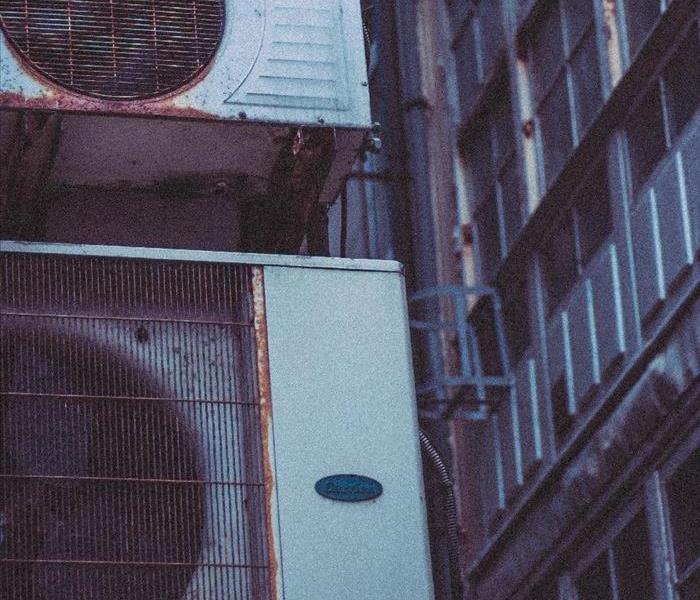Preventing HVAC Water Damage
12/1/2020 (Permalink)
Your HVAC unit is particularly susceptible to water damage thanks to the water it pulls out of the air to cool your space down. However, if this condensation isn’t properly drained, your HVAC is primed to overflow, making the floors, carpets, walls, and ceilings around it wet. To prevent this less than ideal scenario, we recommend taking the following measures to minimize or avoid HVAC water damage altogether.
- Keep your HVAC unit clean.
We can’t emphasize this step enough—keep your HVAC unit clean by removing all the dust and dirt that has accumulated on your condenser at the very least once a year. Spring is the best time of year to do this! Cleaning your HVAC unit twice or even more frequently may be a smart move. You should also make sure any plants or objects are a minimum of two feet away from your unit to keep the airflow flowing!
2. Flush the drain line.
When you have your air conditioning running, double-check your condensation line opening to ensure that water is freely flowing to the drain. Do you spot a clogged drain line? Poke the drainage holes with a wire or paper clip to clear it. Also, it’s good practice to flush your drain line with a commercial mold or algae prevention solution or just regular bleach at least once or twice a year to ward off mold growth.
3. Change its filter.
So many people don’t realize that it’s important to change your HVAC unit’s filter at least once a month. Over time, dust and debris build up on your HVAC filter and changing it prevents the unit from overworking, which extends its longevity as well as prevents the coils from freezing. When the unit overworks, its coils are at a much higher risk of freezing.
4. Install a condensation pump.
Condensation pumps do the important work of funneling excess water flow to its appropriate disposal drain. This is a great, sometimes overlooked, way to reduce the risk of water damage! In addition to installing a condensation pump, consider installing a safety float that shuts down the unit when the condensation builds up to the point of overflow.
5. Get a professional to inspect it.
Does maintaining your HVAC to prevent water damage sound like quite the hassle? Hiring a professional to regularly inspect your HVAC ensures that a trained individual will monitor the risk of water damage your HVAC poses and keep it in good repair throughout the year.
Our SERVPRO of Belle Meade/West Nashville professionals are well-versed in keeping up with routine HVAC maintenance, and we’d be more than happy to help take care of preventative maintenance for you. Give us a call at (615) 242-9391 to learn more about our services!






 24/7 Emergency Service
24/7 Emergency Service
